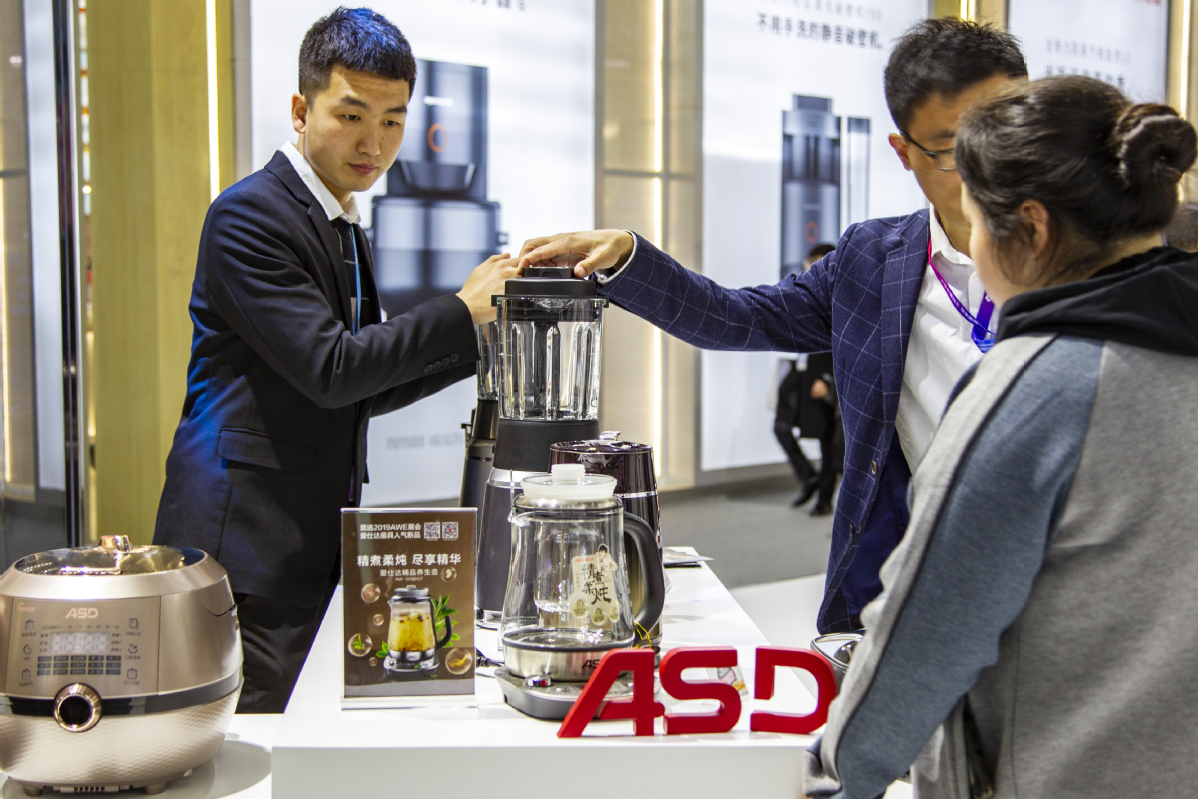For millennials, health is the new wealth
By CHEN MEILING | China Daily | Updated: 2020-10-07 09:49

"Although most of the customers are middle-aged women, much older than me, I don't really mind. I enjoy the service. The aroma of TCM smells good. The massage is comfortable," Xie said.
She bought two new client-packages-79 yuan for three feet-steaming sessions and three moxibustion sessions; 99 yuan for three head massages and three moxibustion sessions.
She used them up before the new school semester began in September. She plans to visit it more often and can't wait to buy a membership card worth over 1,000 yuan whenever she could afford it.
She said she has hair loss and her knees ache. She believes such therapy can help. "Young people should not take their youth and health for granted. The consequences will come years later, and by that time, it'll likely be too late to compensate, and some damage may be irreversible."
She also said more people in their 20s are noticing their own health problems and taking measures in time to pre-empt future harm.
"Renowned respiratory expert Zhong Nanshan, 84, is still vigorous and energetic while giving speeches. I think it's the standard I aspire for."
Tom Zhang, senior engagement manager of Prophet, a global consultancy, said multiple factors are driving young Chinese to appreciate health.
"Obviously, growing up in a more developed China, the young generation prefers a more relaxing lifestyle, which leads to a greater emphasis on health and well-being," Zhang said. "But for this generation, they increasingly believe that 'inner health' is the foundations of 'outer beauty', one of the most important assets to move them forward in life."
Yu from Kantar Worldpanel said more companies have noticed that their main target is no longer old and middle-aged people, but the rising young consumers who have tremendous purchasing power.
He said the market has great potential as COVID-19 has prompted Chinese customers to attach more importance to immunity and be more willing to invest in health.
Kantar Worldpanel data showed sales of healthcare products such as vitamins, cod-liver oil and organic milk saw robust growth among young consumers in developed cities in recent years.
Yu said brands can also explore high-end tailored products based on different individuals' physical conditions.
Innovation is bringing exciting possibilities to the industry.
For instance, instead of preferring traditional invigorants that often require long-term steaming, boiling, stewing or braising, young consumers tend to favor new-age instant and convenient nutritional foods, which match their fast-paced, high-efficiency lifestyle, CBNData's research report showed.
Huqingyutang, a centuries-old pharmacy, sells black sesame balls. Snacks major Three Squirrels developed red dates and gouqi balls and red bean and pearl barley balls. Dong'e Ejiao Co, China's largest donkey-hide gelatin producer, produces instant ejiao pastry and ejiao powder for urban white-collared workers.
The mixture of Western and Eastern elements also enriches experiences for young consumers.
Tongrentang Group, a 351-year-old renowned TCM pharmacy, opened two cafes in Beijing that offer drinks and healthcare services.
They offer coffee infused with TCM herbs such as gouqi, licorice, leonurus, monk fruit and cinnamon. It also offers consultancy, diagnosis and treatment areas on its premises for young consumers to receive food therapies and some attention to minor health problems.
He Junshuai, director of brand management of healthcare services at Tongrentang, told China Daily earlier that the innovation aims to meet rising demand for healthcare products and services among the youth. Its herbal drinks have received high recognition, He said.
Sales revenue of one of its cafes reached 1.62 million yuan in June, three times that in May. The full-year revenue goal is 30 million yuan, the company said.
Pacific Coffee released a coffee product containing ejiao. For this, it cooperated with Dong'e Ejiao in seven cities last year. The new product was very well received and reaped good sales, Beijing Youth Daily reported.
Last year, Wanglaoji, a herbal tea maker, developed two milk tea varieties-one mixed with lotus leaf and white gourd, and another with sugarcane juice and water chestnut-to attract young consumers.
CBNData said young Chinese born after 1990 also prefer health products that can improve their physical appearance. They prefer shampoo infused with herbs like green tea and roots like ginseng. They contributed 50 percent to oral beauty product sales online in 2019, it said.
"Traditional Eastern philosophy of 'you are what you eat' now has a huge influence on the younger generation, so we see post-1990 consumers driving strong growth of food and beverage categories from modern beauty F&B, including F&B products enhanced with beauty functional ingredients such as collagen water, beauty supplements such as skin-whitening pills, to traditional invigorants like bird nest and fish maw," said Zhang from Prophet.
More "on the go" formats like "gum" are also expected to make wellbeing products part of an overall healthy and active lifestyle, he said.
Brands can explore business model innovations such as subscriptions, and bundling products with health or beauty consultation services, he added.
























